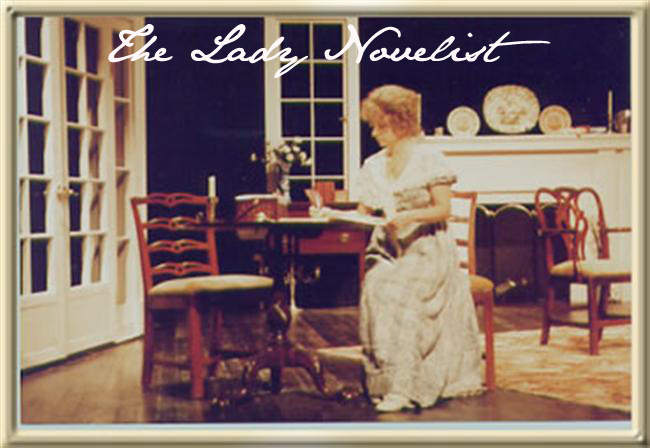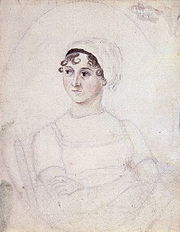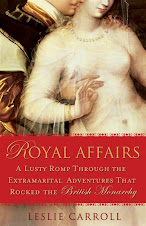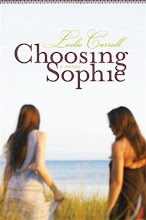
I’m so happy to welcome historical fiction author Christine Trent, whose debut novel THE QUEEN’S DOLLMAKER, is being released today, December 29. What a wonderful way to start the new year!
On the brink of revolution, with a tide of hate turned against the decadent royal court, France is in turmoil - as is the life of one young woman forced to leave her beloved Paris. After a fire destroys her home and family, Claudette Laurent is struggling to survive in London. But one precious gift remains: her talent for creating exquisite dolls that Marie Antoinette, the Queen of France herself, cherishes. When the Queen requests a meeting, Claudette seizes the opportunity to promote her business, and to return home. Amid the violence and unrest, Claudette befriends the Queen, who bears no resemblance to the figurehead rapidly becoming the scapegoat of the Revolution. But when Claudette herself is lured into a web of deadly political intrigue, it becomes clear that friendship with France’s most despised woman has grim consequences. Now, overshadowed by the spectre of Madame Guillotine, the Queen's dollmaker will face the ultimate test.
On the brink of revolution, with a tide of hate turned against the decadent royal court, France is in turmoil - as is the life of one young woman forced to leave her beloved Paris. After a fire destroys her home and family, Claudette Laurent is struggling to survive in London. But one precious gift remains: her talent for creating exquisite dolls that Marie Antoinette, the Queen of France herself, cherishes. When the Queen requests a meeting, Claudette seizes the opportunity to promote her business, and to return home. Amid the violence and unrest, Claudette befriends the Queen, who bears no resemblance to the figurehead rapidly becoming the scapegoat of the Revolution. But when Claudette herself is lured into a web of deadly political intrigue, it becomes clear that friendship with France’s most despised woman has grim consequences. Now, overshadowed by the spectre of Madame Guillotine, the Queen's dollmaker will face the ultimate test.

THE QUEEN’S DOLLMAKER is set during the era of the French Revolution. How did you become interested in this time period? What you love about it?
I’ve always been interested in French and English history, but the period of the French Revolution is just so full of political upheaval and the destruction of centuries of royal rule that it’s easy to become totally absorbed in the era. I can’t imagine the turmoil the average citizen must have experienced. Also, as much as Marie Antoinette has been vilified over time, I think it’s difficult to do a thorough study of her life and not begin to feel a bit of sympathy – if not outright respect – for her. Given her spoiled and pampered upbringing, she really demonstrated nerves of steel when her world began falling apart. I find the period simply fascinating.
I’ve always been interested in French and English history, but the period of the French Revolution is just so full of political upheaval and the destruction of centuries of royal rule that it’s easy to become totally absorbed in the era. I can’t imagine the turmoil the average citizen must have experienced. Also, as much as Marie Antoinette has been vilified over time, I think it’s difficult to do a thorough study of her life and not begin to feel a bit of sympathy – if not outright respect – for her. Given her spoiled and pampered upbringing, she really demonstrated nerves of steel when her world began falling apart. I find the period simply fascinating.
What do you like least about this period? Anything that constrained you or that you had to plot carefully around?
The mass killings were simply appalling, particularly because they were so indiscriminate. If your neighbor was jealous of you, he might report you as harboring royalist feelings, and that pretty much ensured prison time, if not a visit to the guillotine. Robespierre thought that everyone would support his idea of “purification through bloodshed,” when in reality, people just wanted food because they were hungry. In terms of careful plotting, I tried to ensure that Claudette’s adventures with Marie Antoinette very closely tracked to the day-to-day historical record in the days surrounding the queen’s imprisonment and subsequent execution.
The mass killings were simply appalling, particularly because they were so indiscriminate. If your neighbor was jealous of you, he might report you as harboring royalist feelings, and that pretty much ensured prison time, if not a visit to the guillotine. Robespierre thought that everyone would support his idea of “purification through bloodshed,” when in reality, people just wanted food because they were hungry. In terms of careful plotting, I tried to ensure that Claudette’s adventures with Marie Antoinette very closely tracked to the day-to-day historical record in the days surrounding the queen’s imprisonment and subsequent execution.
Did you have to do any major research for this book? Did you stumble across anything really interesting that you didn’t already know?
I’d love to be able to say that I traveled to Paris and Versailles for research, but, alas, instead I was forced to rely on my memory of a trip I took many years ago. I also surrounded myself with lots of biographies on Marie Antoinette, and they exist aplenty. Prior to researching, I had no idea that Count Axel Fersen made a trip to England, and he quite took the country by storm. Fortunately for my storyline, I really needed Fersen in England to meet my dollmaker, so it was one of those “Aha!” moments where fact met fiction in a very neat intersection.
What sparked this book? Was it a character? An historical event? A scene you just couldn’t get out of your head?
In 2003, I had just finished reading Antonia Fraser’s MARIE ANTOINETTE: THE JOURNEY, and was also in the process of weeding through my doll collection (and somehow I never parted with a single doll). Turning the book over in my mind as I was handling all of my precious babies, I remembered that Marie Antoinette enjoyed dolls and frequently sent them to her mother and sister. It occurred to me that there was a nugget of an original story in the queen’s dolls, one that had never been explored before. I finished the manuscript in 2006 and sold it in 2008. So thoughts of the late French queen have literally been swirling around in my head for years.
I’d love to be able to say that I traveled to Paris and Versailles for research, but, alas, instead I was forced to rely on my memory of a trip I took many years ago. I also surrounded myself with lots of biographies on Marie Antoinette, and they exist aplenty. Prior to researching, I had no idea that Count Axel Fersen made a trip to England, and he quite took the country by storm. Fortunately for my storyline, I really needed Fersen in England to meet my dollmaker, so it was one of those “Aha!” moments where fact met fiction in a very neat intersection.
What sparked this book? Was it a character? An historical event? A scene you just couldn’t get out of your head?
In 2003, I had just finished reading Antonia Fraser’s MARIE ANTOINETTE: THE JOURNEY, and was also in the process of weeding through my doll collection (and somehow I never parted with a single doll). Turning the book over in my mind as I was handling all of my precious babies, I remembered that Marie Antoinette enjoyed dolls and frequently sent them to her mother and sister. It occurred to me that there was a nugget of an original story in the queen’s dolls, one that had never been explored before. I finished the manuscript in 2006 and sold it in 2008. So thoughts of the late French queen have literally been swirling around in my head for years.
Please share a bit about your writing process. Are you a pantser or a plotter? Do you write multiple drafts or clean up as you go?
I am a 100% plotter. I greatly admire novelists who can sit down and write, “It was a dark and stormy night,” and let the story go where it will. I typically develop a ten-page synopsis detailing the entire storyline and work from there. Sometimes I’ll make some plot changes once the story is underway, but I usually stick pretty close to that synopsis. As a result, I tend to type up a first draft without cleaning as I go, then doing multiple reads to make corrections.
I am a 100% plotter. I greatly admire novelists who can sit down and write, “It was a dark and stormy night,” and let the story go where it will. I typically develop a ten-page synopsis detailing the entire storyline and work from there. Sometimes I’ll make some plot changes once the story is underway, but I usually stick pretty close to that synopsis. As a result, I tend to type up a first draft without cleaning as I go, then doing multiple reads to make corrections.
Please tell us about your background, and what led you to become a novelist.
My husband says it was a “no-brainer” for me to write books, because I’ve been collecting them for so long. The poor man spends most of his spare time building me bookshelves. I started out writing as a bit of lark (“Hey, wouldn’t it be fun to write a book?”). It only got serious when page followed page and all of a sudden three years later I had a finished book. That’s when I realized the next step was to try and sell it. I was fortunate to be picked up by Audrey LaFehr at Kensington Publishing.
My husband says it was a “no-brainer” for me to write books, because I’ve been collecting them for so long. The poor man spends most of his spare time building me bookshelves. I started out writing as a bit of lark (“Hey, wouldn’t it be fun to write a book?”). It only got serious when page followed page and all of a sudden three years later I had a finished book. That’s when I realized the next step was to try and sell it. I was fortunate to be picked up by Audrey LaFehr at Kensington Publishing.
What/Who do you like to read? And are you one of those authors who tends to avoid reading the same genre you’re currently writing in during the in-progress stages of your own novel?
No way. I love historical fiction and I can’t read enough of it. Writing full-time makes it tougher to get as much reading done as I’d like, but I’ve always got a big pile of historical novels on my nightstand. Waiting for me right now are Michelle Moran’s CLEOPATRA’S DAUGHTER, Lauren Willig’s MASQUE OF THE BLACK TULIP (I’m way behind on Lauren), C.S. Harris’ WHAT REMAINS OF HEAVEN, and Hilary Mantel’s WOLF HALL. I just finished up Harris’ four previous St. Cyr mysteries, as well as Philippa Gregory’s THE WHITE QUEEN. All excellent books. There’s more in my to-be-read pile (including, of course, Leslie Carroll’s NOTORIOUS ROYAL MARRIAGES as research for future novels), but we probably don’t have enough space to list them all.
No way. I love historical fiction and I can’t read enough of it. Writing full-time makes it tougher to get as much reading done as I’d like, but I’ve always got a big pile of historical novels on my nightstand. Waiting for me right now are Michelle Moran’s CLEOPATRA’S DAUGHTER, Lauren Willig’s MASQUE OF THE BLACK TULIP (I’m way behind on Lauren), C.S. Harris’ WHAT REMAINS OF HEAVEN, and Hilary Mantel’s WOLF HALL. I just finished up Harris’ four previous St. Cyr mysteries, as well as Philippa Gregory’s THE WHITE QUEEN. All excellent books. There’s more in my to-be-read pile (including, of course, Leslie Carroll’s NOTORIOUS ROYAL MARRIAGES as research for future novels), but we probably don’t have enough space to list them all.
What are you planning to work on next?
I just wrapped up a sequel, tentatively titled THE WAX APPRENTICE. It follows the adventures of Marguerite Ashby under her apprenticeship to the great waxworker Madame Tussaud. It’s a swashbuckling tale brimming with historical figures, political intrigues, and a heroine determined to live life on her own terms. THE WAX APPRENTICE should be at your local bookstore in early 2011.
I hope your readers will visit http://www.christinetrent.com/ for more information about my books.
THE QUEEN’S DOLLMAKER is available at the following online locations, as well as your local bookstore:
Amazon.com http://www.amazon.com/Queens-Dollmaker-Christine-Trent/dp/0758238576/ref=sr_1_1?ie=UTF8&s=books&qid=1248305592&sr=8-1
Barnes and Noble.com http://search.barnesandnoble.com/The-Queens-Dollmaker/Christine-Trent/e/9780758238573/?itm=1&USRI=the+queen%27s+dollmaker
Borders.com http://www.borders.com/online/store/TitleDetail?sku=0758238576#complete_contributors
Books-a-Million.com
http://www.booksamillion.com/product/9780758238573?id=4266846562070
Indiebound.org http://www.indiebound.org/book/9780758238573
I just wrapped up a sequel, tentatively titled THE WAX APPRENTICE. It follows the adventures of Marguerite Ashby under her apprenticeship to the great waxworker Madame Tussaud. It’s a swashbuckling tale brimming with historical figures, political intrigues, and a heroine determined to live life on her own terms. THE WAX APPRENTICE should be at your local bookstore in early 2011.
I hope your readers will visit http://www.christinetrent.com/ for more information about my books.
THE QUEEN’S DOLLMAKER is available at the following online locations, as well as your local bookstore:
Amazon.com http://www.amazon.com/Queens-Dollmaker-Christine-Trent/dp/0758238576/ref=sr_1_1?ie=UTF8&s=books&qid=1248305592&sr=8-1
Barnes and Noble.com http://search.barnesandnoble.com/The-Queens-Dollmaker/Christine-Trent/e/9780758238573/?itm=1&USRI=the+queen%27s+dollmaker
Borders.com http://www.borders.com/online/store/TitleDetail?sku=0758238576#complete_contributors
Books-a-Million.com
http://www.booksamillion.com/product/9780758238573?id=4266846562070
Indiebound.org http://www.indiebound.org/book/9780758238573
+for+blog+header+copy.jpg)









.jpg)
.jpg)




